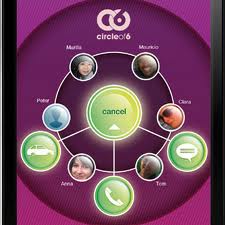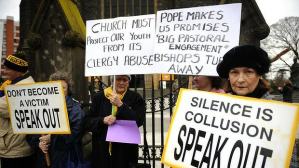Social media has become an all-consuming culture that people all over the world can’t get enough of. However, it seems to be doing much more harm than good. According to an outstanding expose by Vanity Fair entitled Friends Without Benefits, not only has social media distorted gender roles for young people but more importantly, it has given young boys “the right to expect everything from social submission to outright sex from their female peers”.
The twenty-first century generation of children are a generation like no other. Strapped with the latest gadgets and smartphones, majority of them hardly come up for air, let alone engagement with the world outside their social media reality. Instead of developing long-lasting friendships and relationships, kids these days are preoccupied with how many “likes” they get on Instagram and how many followers they have on Twitter.
While this may seem harmless to many people, a new generation of apps, readily available to kids as young as 13 can be threatening in more ways than one. Tinder, a mobile dating app is one of the most commonly used app for teens to “hook up”. No, not get to know each other but solely “hook up”. In fact, apps like Tinder and Grinder have been accused of being too “time-consuming”. The almost 5 minutes you take to analyse a person’s profile and decide whether he/she is good enough for you to “hook up” with is seen as a rather long time stamp when a new app called Pure, offers its subscribers sex in an instant.
If this isn’t astonishing enough for you, not to worry, it only gets worse.
Once you become a member and you decide you’d like to hook up, you submit a request. You say if you’re looking for a man or a woman, and if you can host or travel. The app then presents you with some optional matches. Your photos are only visible to your matches, and no nudity is allowed on your profile photos. If you like a match, you choose him or her. If you both choose each other, you get connected. From there, you can request more photos of your match’s face and body. According to the application’s website, “If you want to see more pictures, just request them. No prior chat necessary”.
In fact, according to the Vanity Fair article, the reason for hooking up is less about pleasure and fun than performance and gossip—it’s being able to update (on social media) about it. “Social media is fostering a very unthinking and unfeeling culture. We’re raising our kids to be performers.”
To me, the fact that such young people willingly utilized or would be willing to utilize such apps was baffling. I simply could not wrap my head around the fact that young girls, fully aware of the dangers lurking online, would be more than happy to participate and engage in a social medium like this. Upon further reading, I started to understand that majority of the girls who actively participated in social media were looking for one main thing, approval and validation. The number of likes they got on pictures, or the number of requests they got to “hook up” in some sense not only validated their self-worth but, their social status. In fact, one of the questions posed to the girls interviewed for the article in Vanity Fair, was whether or not “they knew girls who posted provocative pictures of themselves”. They all answered yes.
“More provocative equals more likes,” said Greta.
“It attracts more guys and then it makes other girls think about doing it just for the attention. They’re attention whores,” said Padma, frowning.
“I think some girls post slutty pictures of themselves to show guys the side to them that guys want to see,” said Zoe. “It’s annoying.”
“Girls call them sluts. Boys call it hot,” said Padma.
Greta shrugged. “I call it hilarious.”
Firstly, when did attracting men or boys become dependent on how provocatively you portrayed yourself? Secondly, if women themselves insist on perpetuating certain underhanded stereotypes of the female gender, how can we as women, expect men to not feed off this stereotype? And lastly, if these young women’s sense of their own agency is so detached, how can we expect young men to show the adequate respect that is due every woman?
This post is not to disregard the enormous good that social media has done in its attempts to discourage and eliminate sexual violence among the youth. In fact, the app Circle 6, the winner of the White House’s “Apps Against Abuse” technology challenge, allows users to reach a group of six trusted friends with clear messages for help in one to two clicks of a button. It is designed to help men and women create support networks and communities on whom they can rely for help in both immediately threatening situations and more entrenched, relationship-based ones.
However, the bigger and more important question we should ask ourselves is how effective will apps like this be in preventing sexual violence?
What do you guys think? What are the rewards for upholding our socially scripted roles, and what are the penalties and punishments doled out for those who transgress unintentionally or willingly? Can these penalties be dangerous?
We have a voice, lets use it.
Do note that every once in a while, I will explore issues outside the exclusive realm of sexual violence, that I feel deserve a great amount of attention. Do Check out “Hot Topics” for more prolific issues around the world.
Related articles
- Sex, Lies & Social Media (csmt13.wordpress.com)
- Youth on Social Media: Duckfaces In Strange Places (csmt13.wordpress.com)
- Sex, Social Networks, and the Female Soul (sarahbrittonmiller.wordpress.com)
- Teen sex, social media red herrings and the moral panic we foster (theglobeandmail.com)






